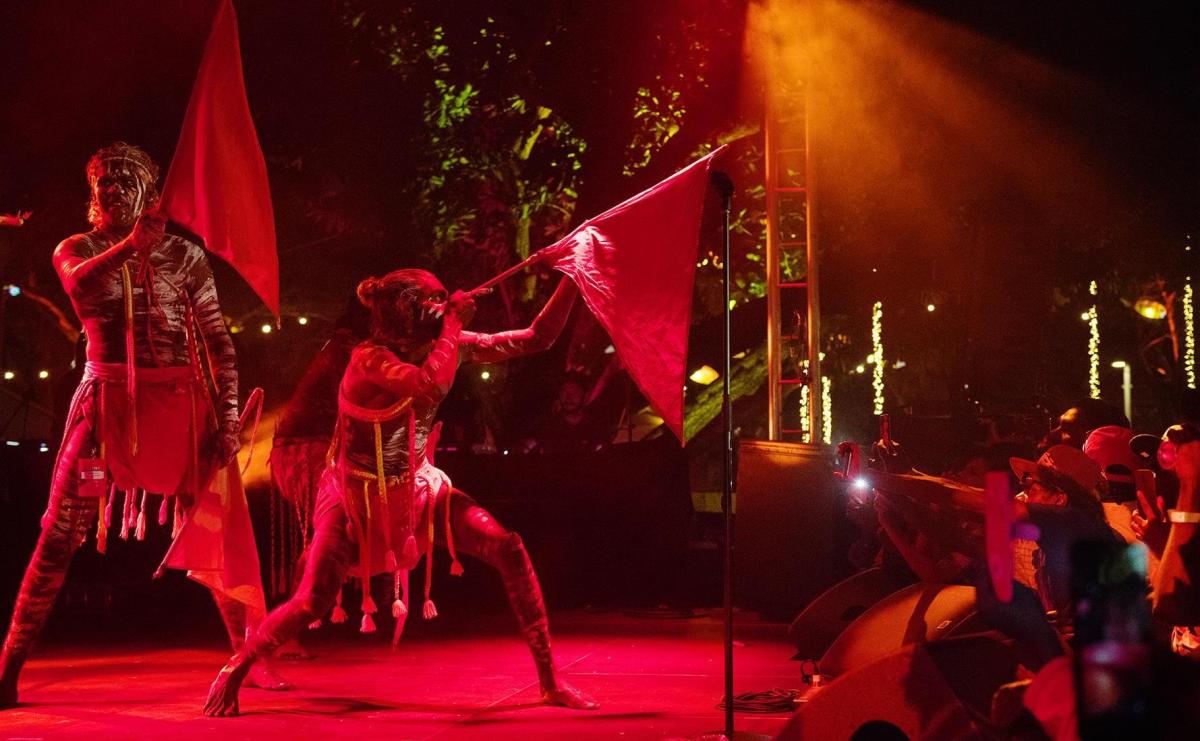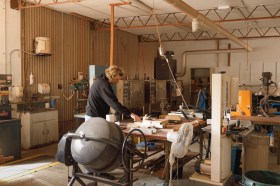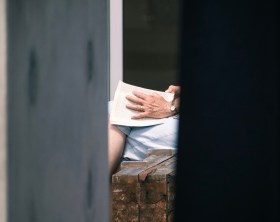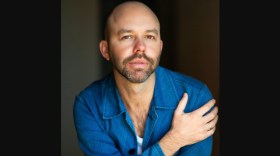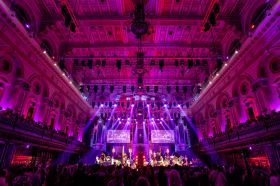Staging a major multi-arts festival in the midst of a pandemic is a significant challenge, but one which Darwin Festival seems to have met with aplomb.
Dubbed DF20 Homegrown, this year’s Darwin Festival ran from 6-16 August. Closed borders across the country meant the festival program was primarily a celebration of Northern Territory artists.
‘When the pandemic broke out, we – like most festivals, I think – went through multiple scenarios from cancellation to downsizing to rethinking, and looking at the online space as well,’ said Darwin Festival’s acting CEO, James Gough.
‘But when we decided to really look at a live outcome and realised that was achievable this year, the community really got behind it.’
LOCAL HUNGER
Ticket sales indicate that hyperlocal programming definitely resonated with local audiences, with the Festival reporting that 95% of ticketed shows sold out and additional shows scheduled to meet the demand.
Programming local acts, rather than the interstate or international acts which are usually a festival drawcard, required careful thinking, Gough said.
‘You’ve got to look at it as really shining a light on the local, bringing the local artists right to the front and centre. So I think from our perspective, yes, they were essentially artists that people might already know, but we created a new experience in curating content … It’s not a matter of just putting a local artist on stage, you have to create a show and some entertainment around it.’
Festival highlights included Streets of Darwin, where local musicians were commissioned to perform an original song each, inspired by their neighbourhoods; contemporary theatre works such as the audio adventure I’ll Tell You in Person and the one-on-one experience Love me Bar(Tender); and a new dance work, North of Centre, a collaboration between Darwin’s Tracks Dance Company, Central Australia’s GUTS Dance company, and Putu Wati, the founder of Darwin’s Balinese dance group Tunas Mekar Cultural Collective, with Jocelyn Tribe.
The Telstra National Aboriginal and Torres Strait Islander Art Awards (NATSIAA) and the National Indigenous Music Awards (NIMA) were also popular, with the latter streamed live to a sizeable national audience.
Darwin Festival’s Artistic Director, Felix Preval, said: ‘Just as the first Festival brought Darwin together in the wake of Cyclone Tracy in 1979, the 2020 Festival has been the much-needed pick-me-up we’ve needed here in the Territory; a source of hope and positivity as well as a celebration of Territory strength and resilience.’
Darwin Festival’s success suggests that art-starved audiences are keen to reconnect with the live experience, Gough told ArtsHub.
‘I think what it really shows is that people want to get out and see art. It’s also about community and the communal experience, I think – I reckon that people want to get together and see live performance and share that community experience,’ he said.
SAFE STAGING
Staging the Festival safely and ensuring that audiences heard and understood the message that it was safe to attend public events, was a key part of the festival’s planning.
‘In our planning, we started very early and worked very closely with the Department of Health to get a really good picture of what we could achieve, what was possible, what wasn’t possible. And then our messaging was consistent and right up front, and we were prepared to adapt really quickly if something went wrong,’ Gough said.
‘Like a normal festival, we made sure that those decisions around safety were our number one priority.’
One of the biggest problems the Darwin Festival team faced was around safely designing a public site – in this instance, creating the Festival Hub in Civic Park (renamed Festival Park for the duration of the Festival program).
‘We designed that to create lots of space and we were thinking differently to a normal festival that we’d produce. That was really challenging. Unfortunately, or fortunately in this case, we actually decided to remove The Lighthouse, [a pop-up open-air stage] which is really popular with the community and replaced it with a space that could be extended or contracted at any point in time. So it was quite a mobile hybrid space that we had but which still made it feel very much like a normal year,’ he said.
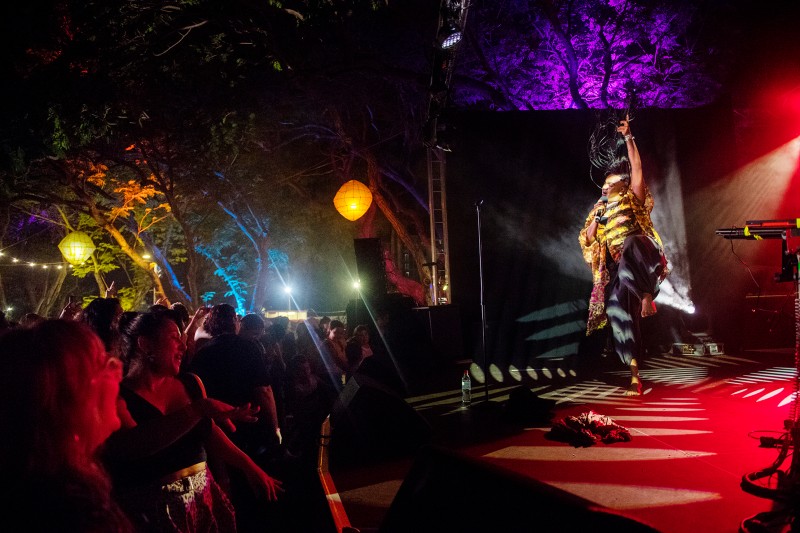
Electric Fields at DF20 Homegrown. Photo credit: Elise Derwin.
‘One of the challenges, of course, is that the crowd often rush to the stage [when a band starts]. So as well as making sure that there was appropriate messaging throughout those shows, we also thought about where we put the bars so that there was plenty of room. And we were running those outdoor spaces … at the same design capacity as The Lighthouse although it was three times the area, so really trying to try to come up with mechanisms to maintain or encourage that physical distancing.’
Ensuring audiences could congregate safely in Festival Park also extended to planning other aspects of the site, Gough explained.
‘It really came down to using some basic infrastructure such as tables and spacing out the digital art, the lighting, the way that the site was designed, right down to how the queues needed to move and placing some infrastructure at those points so there was very low risk of congestion.’
CREATING COMMUNITY
While a sense of nervousness was evident among some patrons, Gough said, the palpable sense of community created by people gathering together was heartening and rewarding for the Darwin Festival team.
‘I think people just want to be together. They want that sense of community, they want to enjoy being out with their friends and seeing an amazing local artist, eating great food. I think there’s definitely nervousness, and through the whole planning process that was front of mind,’ he said.
‘We were monitoring things daily; you’ve really got to be across it when you’re in this pandemic and when you’re running, essentially a physically distanced event. We were always conscious about making sure that we understood the environment that we’re operating in, if that makes sense.’
His advice for colleagues working on other festivals across Australia in the coming months is to ‘look at the opportunities that exist to try and create that sense of community – that would be the best sort of advice I could give. Try to deliver something that that you know, the community is looking for, whether that be online or in a live environment. I think that’s really important.’

